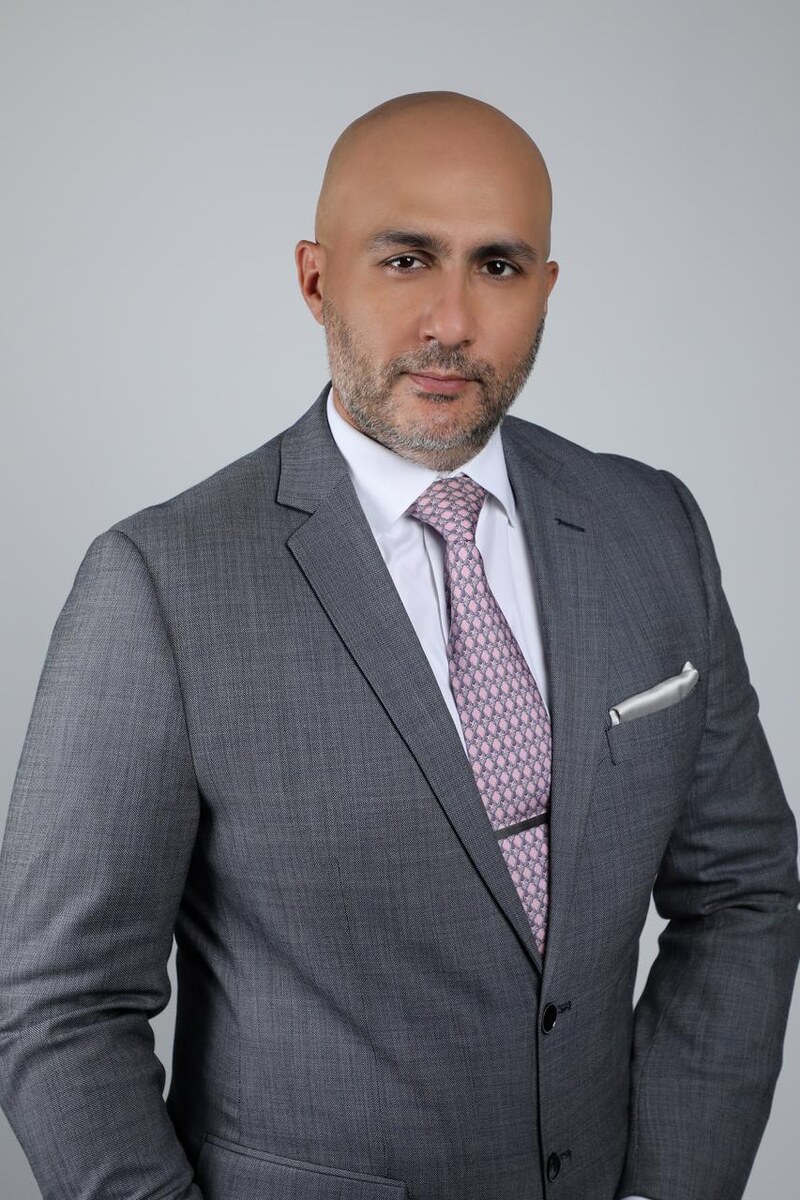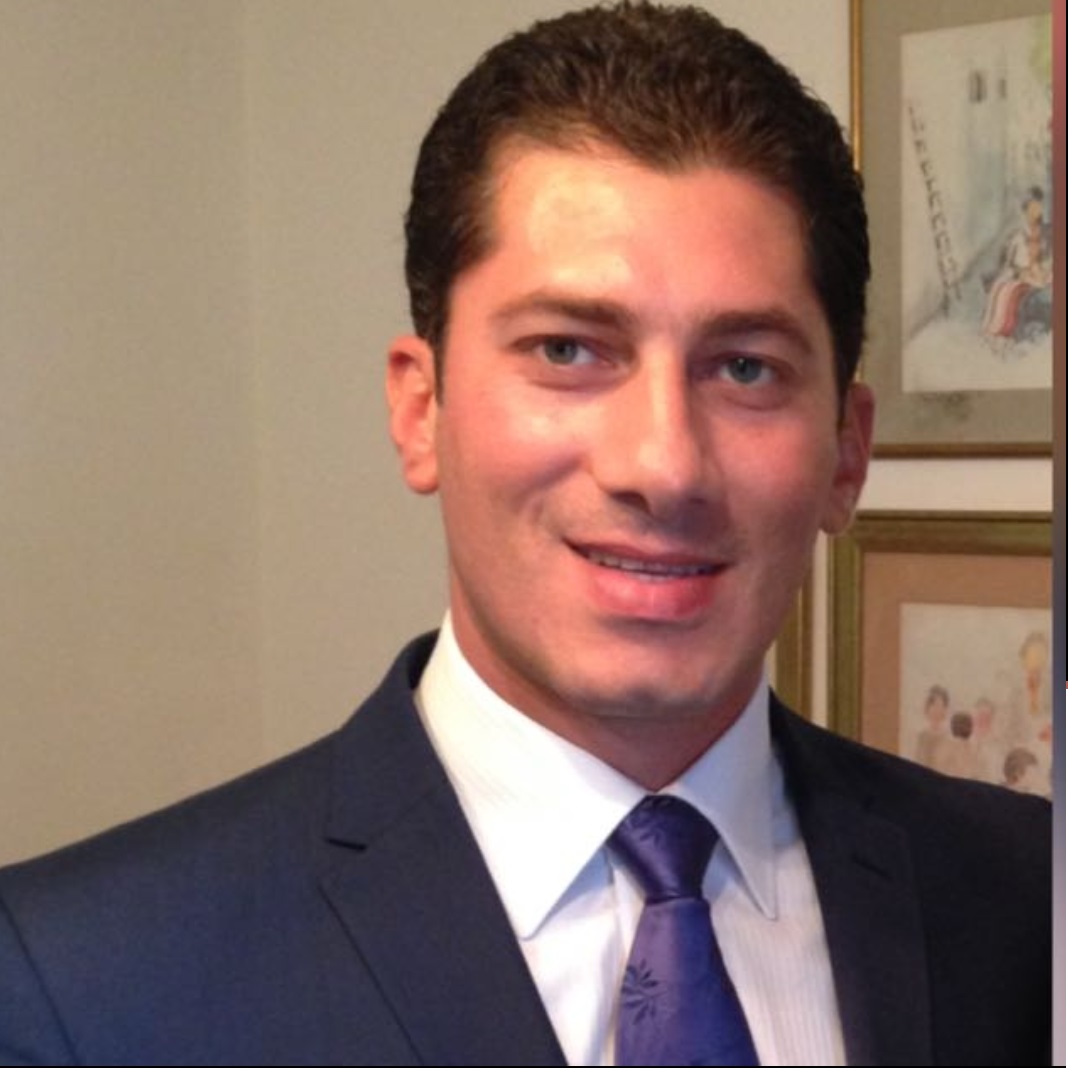RIYADH: Saudi Arabia’s technological landscape is set to get a boost as Ukraine has expressed its eagerness to cooperate with the Kingdom in multiple sectors including agri-tech, fintech, and cybersecurity.
Speaking to Arab News during his visit to the Saudi capital, Oleksandr Bornyakov, Ukraine’s vice minister of digital transformation, said the European nation’s growing prowess in technology could help Saudi Arabia in its digital transformation journey.
During his visit to the Kingdom, the vice minister held meetings with the officials of the Kingdom’s information and investment ministries and the General Authority of Small and Medium Enterprises also known as Monsha’at.
“My visit is kind of like exploring — breaking the ice. Since we are the policymaking body in Ukraine, we know everybody in Ukraine from the tech sector. We want to hear from the local government
about what kind of problems they face, and what kind of things they need, and then, decide what’s the best fit for fulfilling those. I think there’s an interest in bringing this expertise to Saudi Arabia,” said the vice minister.
He added: “From an educational perspective we build a framework of how we teach people from school to university. So they become very talented engineers. We have expertise in almost every sector like healthcare, automotive, energy, and finance. And when countries like Saudi Arabia, trying to digitize any of these fields, I think we could be helpful.”
He said that his visit to Riyadh seeks to establish a relationship on the government level, which will in turn help them to cooperate with private sector entities including startups in the future.
During his visit to the Kingdom, the Ukrainian vice minister also presented several digital products to Saudi officials that can be used on the government-to-government level.

The world is changing fast, and I can’t imagine my life without many digital things that I have become used to. So I think any country that wants to follow up on this and, be on the edge of the technology has to change and invest a lot in this.
Oleksandr Bornyakov, Ukraine’s vice minister of digital transformation
He said that Saudi Arabia is quickly developing, and there is enormous potential for technological firms in the Kingdom.
Bornyakov added that Saudi Arabia should build an entrepreneurship culture in the Kingdom so that local talents in the country can leapfrog in the technological sector with innovations and products.
“The world is changing fast, and I can’t imagine my life without many digital things that I have become used to. So I think any country that wants to follow up on this and, be on the edge of the technology has to change and invest a lot in this. Because, in the West, many great things happen. Even Google, it came from students,” the official said.
He added: “I think, Gulf countries and Saudi Arabia in particular also want to have this, this entrepreneurship culture. And, we know how to teach people how to do that, and, be part of this. I think that’s why we have this mutual interest. And I feel that Saudi Arabia is open to that experience.” Bornyakov further noted that Saudi Arabia’s business-friendly environment for foreign investments is one of the main reasons behind his current tour of the Kingdom.

“Here, there is an investment environment. You can easily come to create a business in one or two days, then open a bank account, and then you are good to go. So this is one of the reasons that we decided to do this tour and, figure out who’s doing what,” he added.
The vice minister also lauded Saudi Arabia’s efforts to diversify its economy away from oil aligned with the goals outlined in Vision 2030.
“I think diversifying is a good idea. It’s actually what’s happening in Ukraine. When I started in 2019, the contribution of the IT sector to the gross domestic product was 2.5-2.6 percent, and now it is close to 5 percent. As of today, 41 percent of all Ukrainian export services are IT.
“I think it is also something interesting here. The energy sector might be strong, for how many years, we do not know,” he said.
According to Bornyakov, Ukraine is also steadily reducing its dependence on grains and heavy machinery, and technological products from the IT sector are becoming major contributors to the nation’s economy.
“Historically, Ukraine was what? Grain and heavy machinery. Unfortunately, due to war, we lost a lot of factories and heavy machinery. And because we thought about IT, even though, less than a decade ago, but still, the sector was evolving very fast. We now have a source of export revenue, which is almost $8 billion every year, and just maybe five years ago, it was $3 billion or $4 billion,” he added.
HIGHLIGHT
Oleksandr Bornyakov’s visit to Riyadh seeks to establish a relationship on the government level, which will in turn help them to cooperate with private sector entities including startups in the future.
Bornyakov also talked about the success of Ukraine’s Diaa application which allows Ukrainians to use digital documents on their smartphones instead of physical ones for identification and sharing purposes, along with accessing over 130 government services.
According to the vice minister, there are 20 million active Diaa users in Ukraine, and he claimed that no other government app in the world can boast about such a huge user database. He also added that such applications have huge potential in the Gulf Cooperation Council region, which will reduce the hassles of paper passports and other government documents, as it allows people to carry everything on a smartphone.
“We want to implement the vision of President Zelensky to build a country in smartphone. Then we created a government super app called Diaa. We started by putting all the papers of a citizen like driver’s license, car titles, insurance, diplomas, birth certificates, tax IDs, and passport, everything on the phone, so you don’t carry paper. So, we were the first country in the world to introduce digital passports,” said Bornyakov.
He added: “There is a huge demand for such apps since Gulf countries have a union, GCC. And if you travel, and if you want to identify yourself, you will have to use different passports and different procedures. We have a solution to solve all of these problems.”
According to the vice minister, Ukraine has opened a source code for these applications, which makes countries use these codes to develop applications as per their requirements.
“Recently, we have opened source code, so you don’t have to pay us. So you can take this and we can showcase and you can use the source code to build, something that you own as this union (GCC), and use it for the sake of its people. And that is one of the things we are happy to share with the world,” he added.































